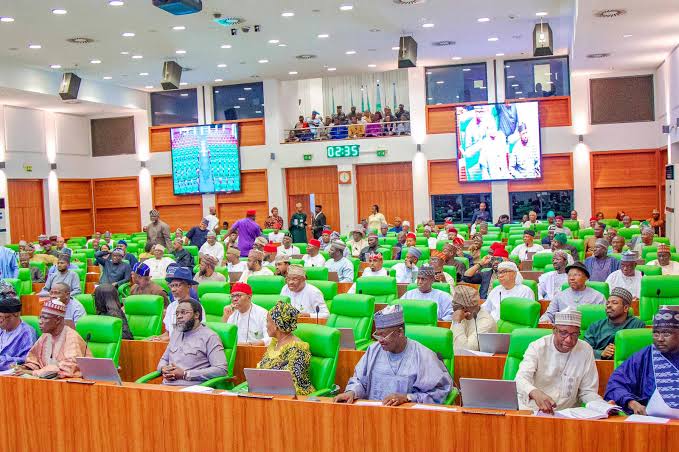The Chairman of the House of Representatives Committee on Public Accounts, Bamidele Salam, has raised concerns over Nigeria’s slow progress in achieving fiscal accountability, calling for urgent reforms to close persistent gaps in public financial management.
This is also as Salam issued a clarion call for sweeping fiscal reforms, urging greater accountability and timely audit practices ahead of the National Conference on Public Accounts and Fiscal Governance scheduled to hold from July 6 to 10, 2025.
Speaking during a media briefing ahead of a national public accounts conference, Salam stated that Nigeria is yet to align fully with the ideals of financial discipline and transparency expected in a democratic society. According to him, although legal frameworks exist, enforcement remains weak due to delayed audits, poor institutional capacity, and lack of swift punitive actions.
Salam lamented the persistent inefficiencies, delays, and infractions within Nigeria’s public financial management architecture. He stressed that unless urgent corrective steps are taken, Nigeria risks further erosion of public trust, fiscal instability, and weakened democratic institutions.
“If you ask whether one is happy, nobody is happy. If you ask anyone in Nigeria today whether they are satisfied with the level of transparency in public expenditure, I would be surprised if anybody in good conscience would say they are,” Salam said.
He revealed that the most recent Auditor-General’s report currently before the National Assembly is for 2021, four years behind real-time. He warned that such delays hinder accountability as many of the culprits implicated in financial irregularities would have retired, changed roles, or passed on, making enforcement nearly impossible.
“We have discovered that the centrality of the Supreme Audit Institution — the Office of the Auditor-General — is key to preventing corruption and mismanagement. But if that office is starved of resources or manpower, it weakens everything downstream.”
Citing data from the 2020/2021 Auditor-General’s reports, the lawmaker decried that over ₦250 billion in public expenditures remain unaccounted for, while more than 60% of MDAs habitually violate financial protocols.
Salam expressed optimism that with targeted reforms and collaboration, Nigeria can reduce unaccounted expenditures from ₦300 billion to less than ₦1 billion and cut audit non-compliance to single digits by 2026.
“No one in good conscience can say they are happy with the level of transparency in public expenditure in Nigeria,” Salam said. “There are significant gaps, and the biggest challenge is not the absence of laws, but the lack of timely enforcement and follow-up.”
Salam lamented that the Office of the Auditor-General for the Federation is still presenting reports years after the financial years in question, which hampers accountability.
“As we speak, the latest report before the National Assembly is the 2021 report—this is 2025. Some of those responsible for infractions in that report have since retired, changed roles, or even passed away.
He emphasized that such delays undermine the essence of the Public Accounts Committee’s constitutional mandate to oversee and ensure proper use of public funds.
“We had only the 2019 report when this committee was inaugurated in October 2023. But through proactive engagement, we got the Auditor-General to lay the 2020 and 2021 reports. We’ve been promised the 2022 report by July and the 2023 report by December. If achieved, that would be progress.”
Referencing Nigeria’s peers, Salam noted that study tours to countries like Ghana, Kenya, and Rwanda have shown the importance of empowering audit institutions. “The Supreme Audit Institution must be strengthened. It is central to preventing corruption and mismanagement of public resources.”
Responding to questions on punitive measures, Salam pointed out that the country already has sufficient laws and sanctions in place. The challenge, he said, lies in implementation. He cited the committee’s recent COVID-19 expenditure report, which documented over ₦1 trillion in spending.
“It was the first time in history the House considered such a report in open plenary. The recommendations include specific punitive actions, and similar reports are in the pipeline.”
Salam urged the media to take a more active role in following up on such reports and holding public officials accountable. “We are legislators. We recommend; enforcement lies with the executive. But if the media tracks these reports, the public can demand action.”
On reforms, the lawmaker said Nigeria has made some progress, such as the removal of fuel subsidy, which previously allowed massive leakages. “That scam has ended. The source is gone. We look forward to more such structural reforms.”
He also announced that Nigeria would host the West African Public Accounts Committee Conference later this year, signaling a commitment to adopting international best practices in audit and fiscal accountability.
“We hope this national conference will generate actionable insights that will improve our laws, policies, and audit processes. Our goal is to close the gap between Nigeria and the rest of the world in fiscal governance.”

